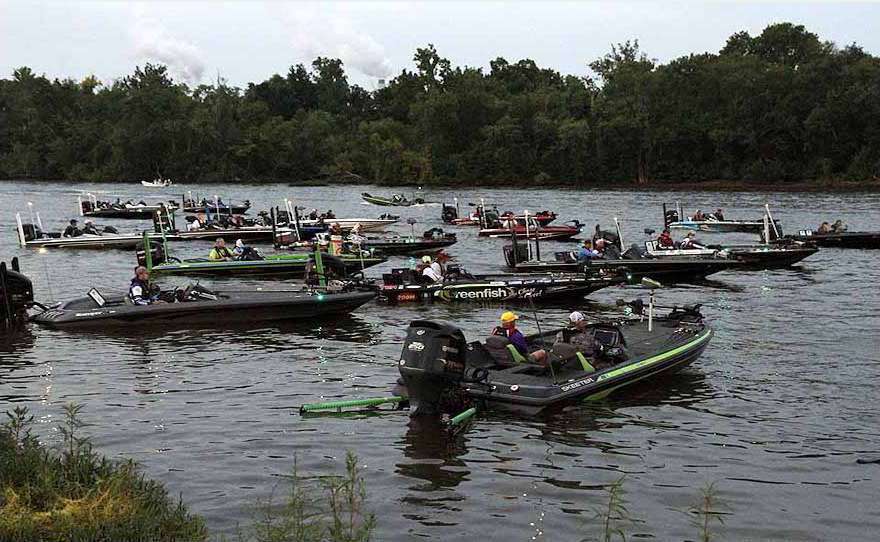
Before I fired up my computer to write this, I did something I have neglected to do prior to fishing Bassmaster Open tournaments, I read the official rules. The error of my ways was driven home when I fished the second Bassmaster Northern Open of 2017 on the James River.
My first competition day was a train wreck. I managed to put only one small bass in my livewell. To make matters worse, I checked in nine minutes late.
I won’t go into the gory details about why I was late. The point is that I was penalized 9 pounds, one minute for every minute I was late. I released my solitary bass and didn’t bother weighing it in.
I don’t know why, but I believed a late penalty applied to all the bass you weigh-in at a tournament, even to bass brought to the scales a day or two after the infraction. I would have known better had I read the rules.
The next day I brought a limit of bass to the scales. I had no chance to earn a check, but I was happy to show that I’m not totally inept as a bass angler, only partially so.
While on stage, I said to tournament director Chris Bowes that if my limit weighed 9 pounds or less I would still have a fat zero on the standings list due to my late penalty. My limit was just shy of 7 pounds, so I assumed a zero would follow my name.
Bowes called me that evening after the weigh-in. Given the rules stickler that Bowes is (thank goodness) he wanted to bring me up to speed regarding the late penalty rule, which is No. 19 on the printed list of the “Bassmaster Opens Official Rules” that you receive every time you enter a Bassmaster Open.
Bowes cordially informed me that a late penalty applies only to the day of the infraction and that it does not carry over to subsequent days. The first sentence of rule 19 reads:
“Competitors who are not at the official check-in point, as described in Rule 16, at the appointed time shall be penalized at the rate of one pound per minute late, to be deducted from the total weight of his/her catch that day.”
Although my failure to understand the rules didn’t cost me anything, it hurt another angler who also fished the James River Open. This angler had some bass in his livewell when his outboard broke down on the first day of the tournament.
He managed to get back to the official ramp and summon the support team that was on hand to service any problems with his brand of motor. Whatever the problem was, the support team needed to pull the boat from the water to fix it.
The angler released the bass he had caught because he believed they would be disqualified when his boat was pulled out of the water. He would have known better if he had read the rules.
Those bass would not have been disqualified. The angler launched his boat after the repair and continued fishing but failed to catch a limit before his designated check-in time. That misunderstanding had serious consequences.
You can pull a boat out of the water for repairs and not have any bass you’ve caught disqualified, provided the boat is put back in the water at the same place. However, the boat may not be returned to the water anywhere other than where it was pulled out. This is true even if the boat is not pulled out at the official ramp. That’s why it is wise to leave the keys for your vehicle with someone who can tow your trailer to a ramp where you may be stranded with a breakdown.
The rules for all Bassmaster tournaments are extremely detailed and probably cover many issues that you have never considered. With that thought in mind, I’m going to read those rules one more time.
“If you’re ever in doubt about a rule during a Bassmaster Open tournament, call me,” Bowes said.
Every angler in an Open tournament receives an info sheet with Bowes’ phone number on it at the official pre-tournament meeting.

